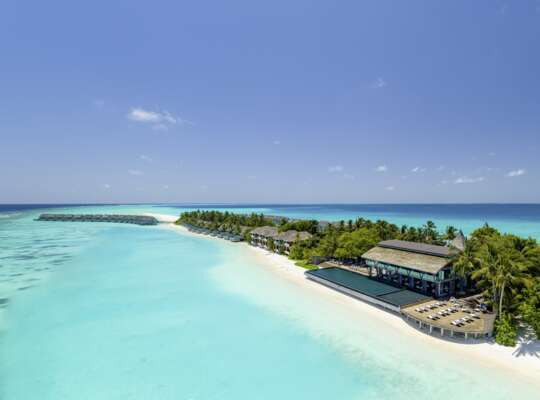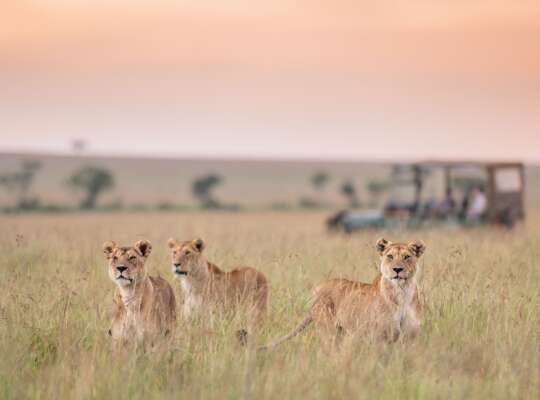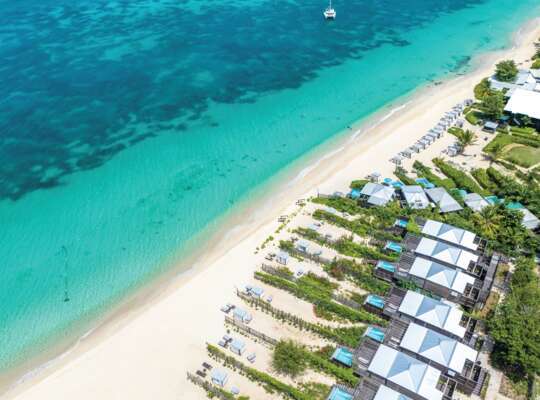-
Currently closed
0800 092 4444 - Book an appointment
-
-
Africa
-
Arabia
-
Asia
-
Australasia & Pacific
-
Caribbean
-
Central America
-
Europe
-
Indian Ocean
-
South East Asia
-
North America
- View all destinations
- Holiday type
- Brochures
- Collections
- Articles
- Where to go when
Beach
We’re here to tailor-make a beach holiday that’s right for you
Family
Incredible Family holidays from Kuoni, adventures your family will always remember.
All inclusive
Our hand-picked all-inclusive holidays include, boutique, family & wellness resorts.
Honeymoons
Romantic honeymoon package you’ll remember for the rest of your lives.
City breaks
Our hand-picked luxury city breaks in Europe, Asia, Africa, Middle East and the USA
Adult only
Romantic retreats and group get-togethers on our adults-only holidays
Safari Holidays
Let us take you on safari in Africa for the best animal viewing on the planet.
LGBTQ+
Romantic retreats or special occasions on our LGBTQ+ holidays
Multi-centre
Combine different destinations, resorts and tours for a dream multi-centre.
Villas
Enjoy the best of both worlds: a luxurious and out-of-the-way villa holiday at a resort
Spa & wellness
Handpicked spa & wellness retreats, pampering or activity holidays all tailormade by Kuoni
Self drive
Create a tailor-made self-drive itinerary for a trip to immerse yourself in outdoor life.
Rail
Sit back, relax and enjoy the view during one of our luxurious train journeys
Beach & beyond
Mix seaside bliss with a side of adventure
Bucket-list trips
Tick off those trips you've always dreamt of
Experience everything, miss nothing
One stop’s never enough if you want to delve a little deeper into your destination.
Family favourites
Family holiday ideas from all-in stay put all inclusives to full-on safari adventures
Jet Set, Ready, Go
The temperatures are on the up, the flowers are blooming, and daylight is winning out. It’s time to start daydreaming of those hazy summer days.
Multi-stop holidays
Take the hassle out of holiday planning with these prepped-and-ready easy adventures.
Reset & Revive
Unplug & play with holidays that take you to places where there’s a focus on the rejuvenation of mind, body and soul.
Seaside breaks
Everything’s taken care and the pressure’s off for the whole crew on an oceanfront escape.
Where to go when in the school holidays
Which is better: Mauritius or Maldives?
Explore Jamaica: our top multi-centre combos
The best things to do in Borneo
Secrets to planning the ultimate Californian road trip
Turquoise dreams: A guide to the Indian Ocean islands
Offbeat gems: The Caribbean's hidden treasures
What to do in Canada: the ultimate bucket list
Responsible travel at Kuoni
Our promise
We know the reasons people love to travel are varied, and very personal.
At Kuoni, we passionately believe that travel can be a force for good. That’s why we have been committed to incorporating sustainability principles into our business operations since our beginnings.
Our approach
Environment
Vistas so vast. Wildlife so magnificent. Nature so raw. Sometimes all you can do is stand and stare in wonder at the magnificence of our planet. It’s this overwhelming natural beauty that attracts travellers to faraway lands. But the ecosystems we marvel at are both precious and precarious. And it’s our responsibility to protect them. To that end we support projects around the world that preserve the planet for the next generation of travellers, as well the communities that call these places home.
In Sri Lanka we support Wildlife & Ocean Resource Conservation in the task of restoring, protecting and preserving mangrove forests in the Koggala Lagoon. Mangroves are an extremely valuable ecosystem that protects coasts and shores, prevents erosion, filters pollutants and maintains water quality. They are also one of the world’s most effective carbon removers. The project aims to plant 6,000 trees and offset 6,000 tonnes of CO2, so it’s not only contributing to nature conservation but also to the reduction of CO2 emissions.
Carbon footprint
Slow down. Stay longer. Get to know the locals. It all adds up to a better trip, and it’s better for the planet too. It’s time we all face up to the realities of our carbon footprint, not just as individuals but as a business too. To that end we have measured our carbon footprint. It’s the first, and most important step on our journey to being net zero. This is our commitment.
Each year, we will make changes to how we work and who we work with in order to lower our emissions in line with global targets. But we are not perfect. We acknowledge that there will be challenges and changes along the way. We don’t believe that carbon offsetting is the best-long term solution, but while we work on others, we give you the opportunity to offset flights through Gold Standard, so you can ensure your holiday has a social benefit as well as an environmental one.
Animal welfare
This is a magnificent world. One where lizards walk on water, frogs can be strawberry red and rainbow coloured flocks of birds soar through the sky. Mighty wildebeest migrate according to ancient rhythms and vast elephants drink at floodlit watering holes. And it’s one that must be protected. To this end we’ll only engage with animal and wildlife experiences if they meet our strict welfare standards, developed in partnership with animal welfare experts ANIMONDIAL.
This has meant phasing out a number of experiences that didn’t meet our animal welfare standards and introducing ethical alternatives. And where possible, animal encounters that we offer will have a positive effect, either on the individual animals you’re seeing or on the species as a whole. We work in partnership with the Mauritian Wildlife Foundation to rear and protect baby Aldabra tortoises until they are strong enough to make their way in the wild independently. This species of giant tortoise has a crucial role in restoring the ecological balance of the island reserve – a necessary part of Mauritius’ bid to achieve Green Destination status by 2030.
Our people – and the people we work with
We are people who care, and we make sure our people care too. We encourage everyone we work with to take active responsibility for the places they visit and put our environmental and sustainable policies into action. From our Personal Travel Experts, who can guide you to gentler holidays – suggesting a leisurely rail journey rather than a flight or swapping an oversubscribed destination for a lesser known one – to the communities in the places you visit, we are genuinely connected to the places we go and the people you’ll meet along the way.
Our partnership with The DER Touristik Foundation means we actively invest in local communities. In Thailand we train disadvantaged young people to work in the hotel industry. We support similar vocational projects in Tanzania, Cambodia and Indonesia supporting gender empowerment, human rights advocacy and all areas of education. And we work with our hotel and ground agent suppliers closely, encouraging them to sign up to the Kuoni Code of Conduct – ensuring that wages meet or exceed minimum wage in the countries we operate in, there is no discrimination and our partners meet certain environmental standards.
Making a lasting impact with the DERTOUR Foundation
Travel has the power to create lasting, positive change – for people, nature and local communities. That’s why we’re proud to support the DERTOUR Foundation, our parent company’s non‑profit organisation dedicated to strengthening education, equality and environmental protection across the world.
By funding grassroots initiatives, the Foundation helps communities thrive and ecosystems flourish, ensuring tourism benefits last long after your trip. It’s one more way your holiday can make a difference. Read more about the Foundation or donate to support their work.
_w=300_h=254.png?v=6e430e193e007bf5b9186456b3279bfdb4220459)
Our Engage Collection of hotels means you can choose places to stay on your Kuoni holiday that have achieved a sustainability certification. This is by no means an arbitrary label. Each hotel with the Engage label has achieved a certification that recognises its sustainability initiatives. There are many of these initiatives, but we only recognise those that features on ABTA’s list of sustainability certification bodies which covers sustainable management, environmental protection, supporting local communities and promoting cultural heritage. By aligning with these accredited schemes, we will help to drive up sustainability standards in the accommodation sector so that customers can confidently choose places to stay that matches their needs. Read more and see hotels:
_w=1280_h=720_pjpg.jpg?v=6e430e193e007bf5b9186456b3279bfdb4220459)
Kuoni wants to keep the world beautiful for future generations to enjoy. As part of its commitment to reduce plastic waste the company has created its own branded version of the Water-to-Go bottle which more than 200 staff have tried and tested on their own travels over the past year, saving an average of 50 bottles of water on each trip.
_w=1920_h=960_pjpg.jpg?v=6e430e193e007bf5b9186456b3279bfdb4220459)
Our guidelines define a binding framework for action for us and our business partners. With the measures and goals described therein, we advocate fair tourism that strengthens human rights, improves working conditions and works to protect animals and the environment.
Talk to an expert today
Your dream holiday is just a phone call away
Call us on 0800 092 4444All Destinations
Monday: 11am - 4pm
Tuesday: 9am - 8pm
Wednesday: 9am - 8pm
Thursday: 9am - 8pm
Friday: 9am - 8pm
Saturday: 9am - 6pm
Sunday: 11am - 4pm
Australasia & North America
Mon to Fri: 10am - 5pm
Saturday: 10am - 5pm
Sunday: Closed
August Bank Holiday: 11am - 5pm
Africa, India & Japan
Mon to Fri: 10am - 5pm
Saturday: 10am - 2pm
Sunday: Closed
August Bank Holiday: 11am - 5pm
Visit your local Kuoni store
Find your nearest storeIn-person, virtual or phone
Get face-to-face advice from our friendly team
Email enquiry
Tell us what you’re planning and let our experts help you with your holiday




_w=24_h=25.png?v=6e430e193e007bf5b9186456b3279bfdb4220459)
_w=24_h=25.png?v=6e430e193e007bf5b9186456b3279bfdb4220459)
_w=24_h=25.png?v=6e430e193e007bf5b9186456b3279bfdb4220459)